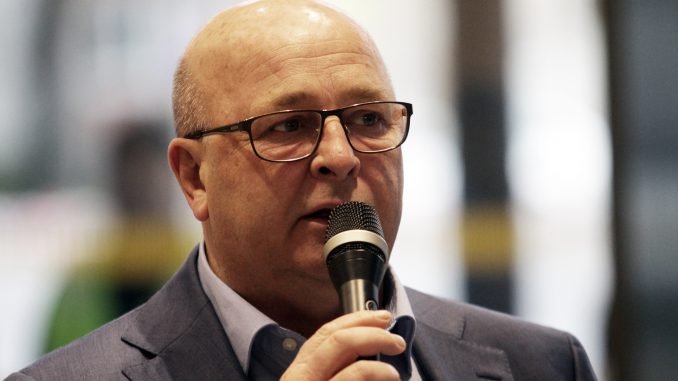
“The government will grant money for the stadium but we’re awaiting the final design and information on the city’s contribution. I realize how important it is for Lithuania to have at least one good field for holding international matches without shame. I know that the city’s top officials and Seimas members also understand this, therefore, the issue will be addressed,” Skvernelis said in a comment to BNS after meeting with the Kaunas mayor a few days after the government decided to exclude the project in the government’s investment program.
In his words, the final 2018 budget will be seen in December after discussions at the parliament.
“I am convinced we will find money to get the reconstruction work moving from a dead point. Lithuanian soccer fans can be calm. It is just important to understand that we are earmarking an additional 250 million euros to all municipalities this year. Kaunas will get an additional 21 million euros, which the city will be able to spend at its discretion,” said the head of the government.
Kaunas Mayor Visvaldas Matijošaitis said he had been assured by Skvernelis about funding of the Kaunas stadium.
“We had a brief conversation with the prime minister, he said there had been no changes and that the stadium would be provided necessary funding within two years. The project will not be left without money,” Matijošaitis told BNS on Sunday.
He confirmed he had met for a brief conversation with Skvernelis in Kaunas last Friday where they both watched a Euroleague basketball match.
The government’s State Investment Program for 2018-2020, which was approved by the Cabinet last week, does not stipulate money for reconstruction of the Kaunas stadium.
According to calculations by the Kaunas municipality, the reconstruction will cost 25 million euros, with 5 million euros expected from the European Union’s (EU) funds and the remaining sum covered equally by the government and the municipality, i.e., 10 million euros each.
Under the design, the reconstruction would increase the number of seats in the stadium from the current 9,500 to 15,000, with all of them under the roof.
Currently, Lithuania’s national soccer team plays international matches in a 5,000-seat stadium of the Lithuanian Football Federation with artificial turf.

Be the first to comment